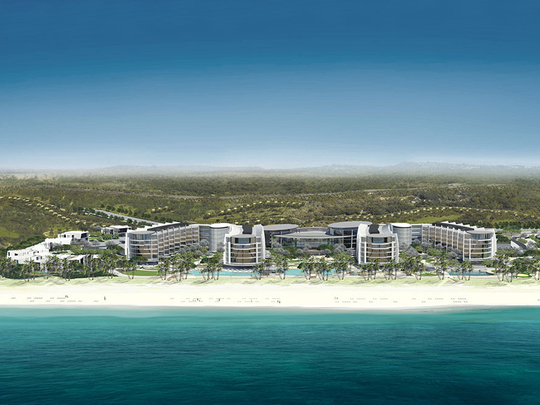
Dubai: A new luxury hotel is opening in the UAE in just a few months and it is making a special pledge that only just a few in the industry have so far done.
Jumeirah announced on Wednesday that its 293-room beachfront property in Saadiyat island, Abu Dhabi, that will open its doors on November 11, 2018 will be plastic bottle and plastic straw-free.
That means guests that will be checking into the resort, located just 10 minutes from downtown Abu Dhabi, won’t be able to order their favourite bottled water whenever they feel like it or sip their drink from a plastic straw.
Instead, they will get local filtered water served in glass bottles. Guests may also receive reusable plastic bottles which they can then refill at water stations throughout the hotel.
There are also other alternatives being looked into and the hotel said that it is partnering with Trust Your Water, which specialises in water treatment systems, to implement these.
“The hotel will provide solutions to eliminate the need for single use plastic water bottles,” Jumeirah said in a statement.
The property will feature eight villas with private pools and 70 suites.
A number of hotels and restaurants around the world have recently joined in the campaign against ocean plastic pollution. In the UAE, Bikers Café, Freedom Pizza and The Noodle House have recently declared they’re going strawless.
Businesses in the hospitality industry are a major consumer of single-use plastic packaging and materials, and one property alone can use 96,000 plastic straws in less than a year.
Proudly plastic straw free for over 8 months now. That's approximately 96,000 plastic straws that have not gone to the oceans and landfill. This is only a tin percentage of the 500,000,000 single use straws that are used daily. Do you part and... https://t.co/tE3EKN8cNP
— Newtown Hotel (@NewtownHotel) April 4, 2018
According to Worldwatch Institute, the global consumption of plastic has been rising, with some 299 million tonnes produced in 2013 alone, representing a 4 per cent rise over 2012. And each year, approximately 10 to 20 million tonnes of plastic end up in the oceans.
“This plastic debris results in an estimated $13 billion a year in losses from damage to marine ecosystems, including financial losses to fisheries and tourism as well as time spent cleaning beaches,” it said in a report.












